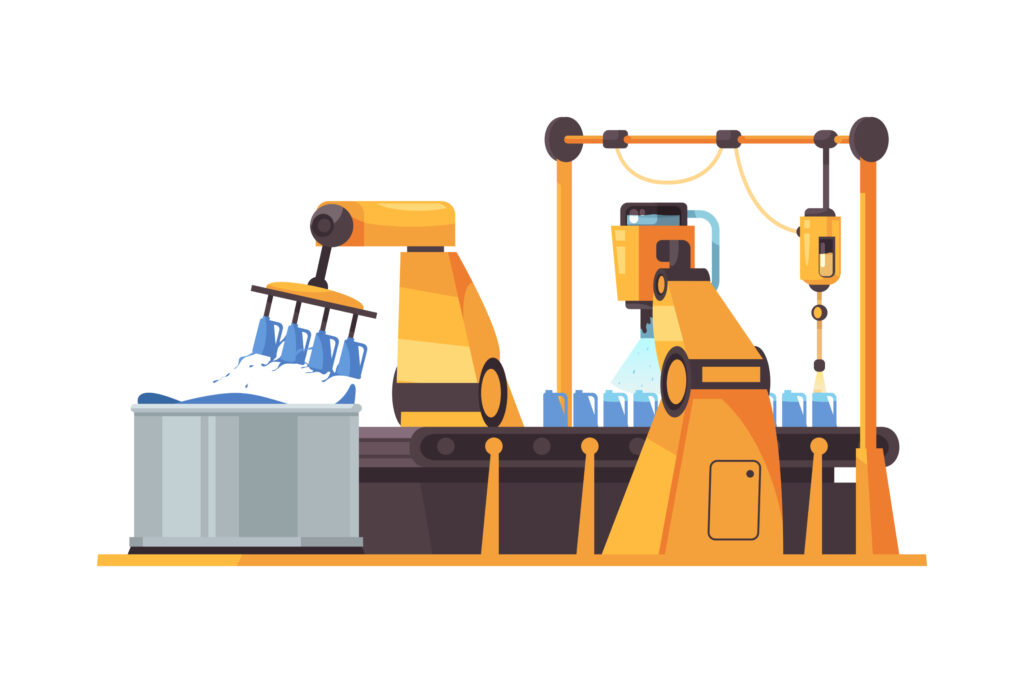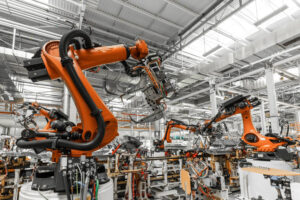Artificial Intelligence (AI) is revolutionizing various sectors, and manufacturing is no exception. From enhancing workplace safety to optimizing production, AI is becoming an invaluable tool for manufacturers worldwide. Here’s a look at six ways AI is driving growth in the manufacturing industry.
1. Increasing Workplace Safety
Collaborative robots, or cobots, work alongside humans to enhance workplace safety. Unlike traditional industrial robots, cobots are lightweight, affordable, and easy to program. They assist with complex and dangerous tasks, reducing the risk of workplace injuries. Machine learning algorithms further improve cobot communication with human workers, identifying hazardous scenarios and taking preventative measures.
2. Facilitating Preventative Maintenance
AI-powered predictive maintenance is transforming equipment upkeep. By analyzing past performance data, AI predicts machine failures, reduces downtime, and identifies underlying issues. According to McKinsey, predictive maintenance can reduce machine downtime by 30-50% and extend machine life by 20-40%. Although integrating AI with older machinery can be challenging, the benefits in terms of cost savings and efficiency are significant.
3. Supplementing Human Skills
AI complements rather than replaces human skills in manufacturing. Generative design, used by companies like Airbus and New Balance, leverages AI to create numerous design possibilities, which designers and engineers then refine. Canon’s Assisted Defect Recognition combines machine learning, computer vision, and predictive analytics to detect structural defects, enhancing product quality and reducing errors.
4. Forecasting Product Demand
AI improves demand forecasting by analyzing extensive data sets to identify patterns and offer real-time insights. Machine learning algorithms help manufacturers anticipate demand, optimize production schedules, and prioritize product launches. While machine learning requires continuous data input and learning, the long-term benefits include more accurate demand forecasts and cost savings.
5. Improving Product Inspection
High-resolution cameras paired with AI-based identification algorithms enhance product inspection processes. This technology identifies defects, improves quality control, and ensures compliance with stringent industry standards. For example, BMW uses AI to match vehicle order data with real-time images, alerting inspection teams to discrepancies and ensuring high-quality outputs.
6. Optimizing Production
AI-driven automation of repetitive tasks increases manufacturing efficiency. Industrial robots handle tasks such as assembling, lifting, and packing, freeing human workers for more complex duties. Siemens’ two-armed robot, capable of reading CAD models and producing prototypes without programming, exemplifies AI’s potential to revolutionize production processes.
AI is ushering in a new era for manufacturing, enhancing safety, efficiency, and productivity. As technology continues to advance, AI will play an increasingly vital role in the industry. Manufacturers that embrace AI are poised to lead in this new industrial revolution, leveraging innovative solutions for sustained growth and success.




